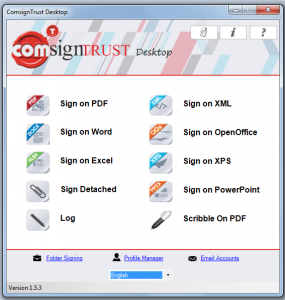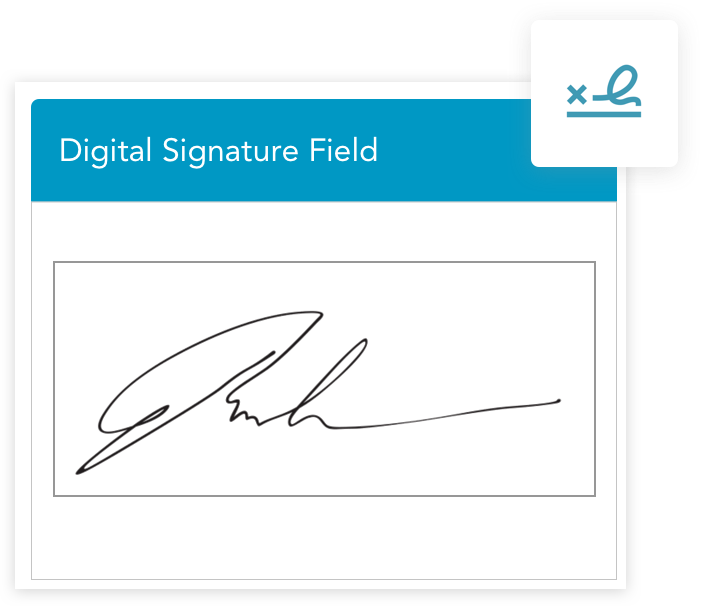Types Of Digital Signature


The suggested four classes are the following:- Class 1 Certificate: Class 1 certificates shall be issued to individuals/private subscribers. These certificates will confirm that user's name (or alias) and E-mail address form an unambiguous subject within the Certifying Authorities database.
A Digital Signature is a fast, secure, and convenient way to sign an electronic document without having to print, sign and scan. Digital Signatures help verify the authenticity of a signature, as well as protect the integrity of the documents being signed. A digital signature (not to be confused with a digital certificate) is a mathematical technique used to validate the authenticity and integrity of a message, software or digital document. Download this free guide. Buying digital certificates, or public key certificates, can be a complex process.
. Sign & EncryptOur Sign & Encrypt DSC can be used for both signing and encrypting.
It is convenient for users who need to authenticate and maintain the confidentiality of the information shared. Its usage includes filing government form and application.Validity of the CertificateYou could buy certificates with a validity upto three years. (The validity is controlled by law, and you cannot buy certificates more than three years and less than One year validity) Classes of CertificatesThe IT law allows us three Classes of DSC, however we only sell Class 2 and Class 3 certificates. We are not selling Class 1 Certificates.The difference between Class 2 and Class 3 is verification guidelines.
Class 2 Digital Signature CertificateThis is the most popular category of certificate. We offer Class 2 DSC to individuals and organisations including both Indian and foreign. The main function of this certificate is to authenticate the details of the signer. It re-affirms the already mentioned data of the user. It is used in form-filing, email attestation and income tax filing. More uses of Class 2 Digital Signature Certificates are given below -.MCA e-filing.LLP registration.GST application.IE code registration.Form 16,etc.
Class 3 Digital Signature CertificateThis is the safest of all certificates. It is used in matters of high security and safety. It is mainly used in online trading and e-commerce, where a huge amount of money or highly confidential information is involved. If you opt for Class 3 certificate, all applications which are created for Class 2, should be able to recognize your certificates. Following are the main functions of Class 3 certificates -.E-tendering.Patent and trademark e-filing.MCA e-filing.Customs e-filing.E-procurement.E-biding.E-auction,etcWho could buy our certificateThere is no limitation on who could buy our certificates, people and organization from India and outside India can buy our certificates, provided they meet our Verification Guidelines.

Digital Signature Pdf
What is a digital signature?In some geographies and industries, digital signature is the preferred technology for e-signing documents – whether that’s for internal, B2B or B2C signing workflows. Digital signatures utilize a set of accepted standards called Public Key Infrastructure (PKI) to ensure highest security and acceptance. Electronic signatures are widely accepted as a legally binding and secure method of signing documents. Around the world, organizations are embracing e-signatures as an underpinning technology to drive their digital transformation projects forward.OneSpan Sign is a leading e-signature solution built on digital signature technology that can help you to meet geographic requirements, such as those outlined in the EU’s eIDAS regulation, as well as industry-specific requirements in regulated industries such as Financial Services, Government and Healthcare. What's the distinction?“Electronic signatures” and “digital signatures” are often used interchangeably but each term carries a distinct set of defining features and functions. The broader category of e-signatures often includes digital signatures, which is a specific type of technology used to implement electronic signatures.More specifically, an electronic signature is, like its paper equivalent, a legal concept. Its purpose is to capture a person’s intent to be legally bound to an agreement or contract.A digital signature on the other hand refers to encryption/decryption technology and a subset of an electronic signature. Based on public-key cryptography, which generates two keys (public and private) using cryptographic algorithms, digital signatures secure signed documents and allow one to verify the authenticity of a signed record.
Digital Signature Example
A digital signature alone however is not an e-signature and therefore cannot capture a person’s intent to sign a document. When used with an e-signing application, digital signature technology secures the e-signed data. What's the solution?A solution that simply digitally signs documents often lacks feature sets commonly found in best-in-class eSignature solutions, including an out-of-the-box user interface (UI), as well as transaction management and advanced workflow customization capabilities used in more complex transactions that touch the customer.The bottom line is that when looking for a solution to manage your signing processes, it’s important to ensure that it is built on digital signature technology to guarantee the integrity of the document and underlying signatures. Without digital signatures, your document-based transactions may not be legally binding, putting you and your organization at risk in the event of a compliance or legal case.